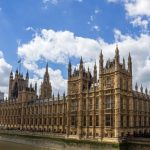According to Parliament’s Knowledge Exchange Unit (KEU), more than 3,500 researchers from across the UK have signed up to its COVID-19 Outbreak Expert Database, which includes a number of BU academics across all faculties.
The KEU reports that it is already making use of the database and, later this week, will be directly contacting experts to ask them to share their insights into the COVID-19 pandemic and its short, medium and long-term impacts. Where possible, the KEU aims to acknowledge researchers’ contributions publicly.
If you haven’t already signed up, it’s not too late, as it is a live database. Follow the link and please email your faculty impact officer to let them know, so we can track BU involvement.
Signing up does not commit you to contributing in any way, it’s simply so that Parliament has your details to hand and can contact you very rapidly; if they contact you and you aren’t able to respond, they will fully understand.
The topic areas where Parliament may need to be able to access research expertise are listed below, and found on the sign up page. If you identify an area that has not been listed, please do feel free to give details on the sign-up form in ‘other’:
Agriculture and farming, Airlines/airports, Arts, Behavioural science, Burial and cremation, Brexit, Business, Charities, Children and families, Civil contingency planning and management, Climate change, Communicating uncertainty, , Consumer protection, Coronavirus, Coroners, Countryside, Courts, Criminal justice, Criminal law, Crisis communications, Critical national infrastructure, Data protection, Death, Defence, Economics, Education – higher and further, Education – schools, Elections, Emergency planning, Emergency services, Employment, Employment law, Energy, Environment, European Union, Financial services, Financial systems and institutions, Foreign policy, Government, Health economics, Health services, Housing, Human rights, Immigration, Immunology / vaccinology, Industry, Infection control, Inflation, Insolvency, International law, IT, Law, Legal aid, Leisure and tourism, Local government, Medicine, National security, Package holidays, Pandemics, Pensions, Police powers, Ports and maritime, Prisons, Public expenditure, Public finance, Public health, Public order, Railways, Registration of deaths, Religion, Social security and tax credits, Social services, Sports, Surveillance , Taxation, Trade, Transport, Unemployment, Virology, Waste, Water, Welfare, Welfare benefits.
 The Parliamentary Office of Science and Technology publishes all 15 reports based on its Covid-19 Expert Survey
The Parliamentary Office of Science and Technology publishes all 15 reports based on its Covid-19 Expert Survey Research in the NHS during the COVID-19 pandemic – HRA update
Research in the NHS during the COVID-19 pandemic – HRA update










 From Sustainable Research to Sustainable Research Lives: Reflections from the SPROUT Network Event
From Sustainable Research to Sustainable Research Lives: Reflections from the SPROUT Network Event REF Code of Practice consultation is open!
REF Code of Practice consultation is open! BU Leads AI-Driven Work Package in EU Horizon SUSHEAS Project
BU Leads AI-Driven Work Package in EU Horizon SUSHEAS Project ECR Funding Open Call: Research Culture & Community Grant – Apply now
ECR Funding Open Call: Research Culture & Community Grant – Apply now ECR Funding Open Call: Research Culture & Community Grant – Application Deadline Friday 12 December
ECR Funding Open Call: Research Culture & Community Grant – Application Deadline Friday 12 December MSCA Postdoctoral Fellowships 2025 Call
MSCA Postdoctoral Fellowships 2025 Call ERC Advanced Grant 2025 Webinar
ERC Advanced Grant 2025 Webinar Update on UKRO services
Update on UKRO services European research project exploring use of ‘virtual twins’ to better manage metabolic associated fatty liver disease
European research project exploring use of ‘virtual twins’ to better manage metabolic associated fatty liver disease